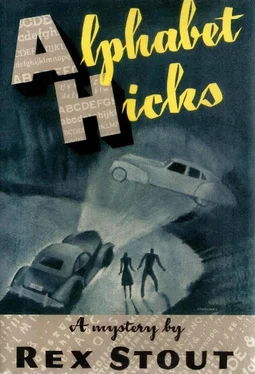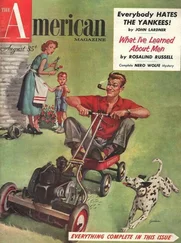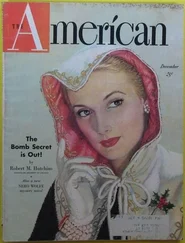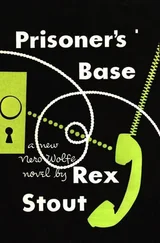“Mother of waters!” said Hicks in a tone of astonishment. “Do you have to splash on it to make it work?”
The girl did not reply. She was using her handkerchief, removing dewdrops and streaks. Hicks noted with approval that her nails were not painted and her lips were her own — or at least not obtrusively chromatic. Her eyes, when they finally came to him, were clear and candid and direct.
“I wasn’t splashing,” she said with spirit. “What do you want?”
“That’s rude,” Hicks said firmly. “You shouldn’t be rude.”
“Neither should you. You bust in here when I’m crying and make that crack about splashing.”
“Okay. I’d like to see Mr. Brager.”
“I’m afraid you can’t.” Her lungs’ urgent demand for oxygen spoiled her dignity. The air rushed in with little hissing gasps, shaking her shoulders and breasts. She gulped and recovered. “He’s very busy.”
Hicks nodded. “I met Mr. Dundee on the path, and he said they’ve got the furnace going. Will it go all day?”
“I don’t know. Sometimes it does—”
“What was the pressure on Lot Six from eleven to twelve?”
It was the voice again. This time Hicks localized it as coming from a grill set in the wall at the girl’s right. She spoke into the microphone:
“I haven’t that, Mr. Brager. Mr. Dundee wasn’t using the speaker, he recorded it, and it isn’t typed yet.”
“Run over the plates and get it.”
Hicks sat down in a yellow chair and took a newspaper from his pocket, but watched the ensuing performance instead of reading. The girl reached to a contraption at the end of her desk and pulled it closer, and from a rack attached to it selected one of a row of disks like phonograph records, except that they were the color of weak tea. She put it in place on the player and flipped a switch, and in a moment a voice sounded, the voice of Ross Dundee:
“Thirty grams of Formula K give no result. Fifty grams increase the viscosity...”
When the third plate she tried gave her the desired information, she relayed it to Brager through the mircrophone, pushed the machine out of the way, and sat in readiness for another sortie by the dragon.
She sighed deeply.
Hicks asked, “Are you Miss Gladd?”
“Yes.” She sighed again. “That’s me. Why?”
“I just wondered. I happened to know there was a Miss Gladd here, and when a young woman got off the train I was on and I heard her tell the driver to bring her here, I jumped to the conclusion she was Miss Gladd. She was about your build, but a few years older. And by the way—” Hicks glanced around as though the thought had just occurred to him — “where is she? Didn’t she get here?”
“Not — not here. She’s over at the house.”
“Oh, then you know her?”
“She’s my sister.”
“Then I was right about her name anyhow. She is Miss Gladd.”
“Not any more. She married — her name is Mrs. Cooper.”
“Cooper? I knew a—”
The voice filled the room again, and the girl began on the typewriter. Hicks unfolded his newspaper, but still did not read. He was not in a mood to read. His blood had tricked him. It had begun to pump, he had felt it, when that woman had told the driver to take her to Dundee’s; and now she was only coming to see her sister! He had never been fooled like that before, by his blood or nerves or whatever it was, and he didn’t like it.
Nor, obviously, did he accept it as final, for he continued to sit there. Parallelograms of the afternoon sun through the windows crept slowly across the floor. During the intervals between the dragon’s incantations he made efforts at conversation with Miss Gladd, but she was preoccupied and laconic. When his watch said ten minutes past four he decided, from pure obstinacy, that he wouldn’t go without a talk with Brager.
But there was an intervention. Hearing a sound outside, Hicks stretched his neck to look through a window, and saw a car pull up on the drive and stop directly in front of the door. The man driving it popped out, and Hicks knew the man. It was R. I. Dundee. Just as the doorknob turned Hicks hunched over with his elbows on his knees, his head down, myopically intent on his newspaper. That way he could see nothing but Dundee’s feet passing in front of him, and his face could not be seen at all. Dundee’s voice sounded:
“Good afternoon, Miss Flagg — that’s not your name. What’s your name?”
“Gladd, Mr. Dundee. Heather Gladd.”
“No wonder I couldn’t remember it. Where’s Mr. Brager, inside? I hear the furnace, don’t I?”
“Yes, sir. Shall I tell him—”
“No, I’ll go in.”
Dundee’s feet were moving, receding, and Hicks was congratulating himself on having escaped an embarrassing encounter when suddenly the hum ceased and an instant later came the sound of a door opening, and Dundee spoke:
“Hello, Herman.”
“Hello, Dick.” It was the strident voice that had been coming intermittently from the grill for the past hour. “I saw you passing the windows. Ross told me you were coming out. He went over to the house—”
“I saw him. I want a talk with you.”
“Of course. But the furnace — excuse me. Who is that man, Miss Gladd, if you please?”
“He’s waiting to see you, Mr. Brager.”
That ruined it. Hicks arose and faced them. The incredulous and irate stare of R. I. Dundee gave Hicks an opportunity to observe that Brager was a flustery little man with a flat head and protruding eyeballs, somewhat ludicrous in a faded and spotted brown apron that reached below his knees.
“What the devil,” Dundee blurted, “are you doing here?”
Hicks, in a tone of most emphatic and unalloyed disgust, said one word.
“Nothing.”
And made for the door.
Hicks sat on the narrow little footbridge, facing downstream, his feet dangling, watching the brook gurgling around the stones.
He had been there only a matter of minutes when his head jerked sharply to the left. Footsteps from the direction of the laboratory — glimpses of a figure on the path, through the undergrowth — then he saw who it was. Heather Gladd was moving slowly, as though reluctantly, long-legged and something to watch, with a hint of youthful awkwardness in her grace like a two-year-old thoroughbred.
She got to the bridge and Hicks twisted his neck to look up at her.
“Can you get by?”
“Sure.”
But she stood there, and after a moment said, “What I ought to do is go back and tell Mr. Dundee you’re here.”
“Why?”
“He told you to get off the place, didn’t he? And he told Mr. Brager not to let you on again. Also he told him your name. Hicks.”
“Right.”
“Alphabet Hicks.”
“Dundee didn’t tell Brager that.”
“No, but I know.” She stepped onto the bridge. “I’ve seen your picture and read about you. I read the New Yorker. I’m a very smart girl.”
“Good for you. Knocking off for the day?”
“Yes. Mr. Dundee chased me.”
“So you’re going to see your sister?”
“Yes.” She grimaced. “And I don’t want to.”
“Why not?”
She made no reply to that. Instead, she moved to the center of the bridge, and before he knew it was sitting there beside him, deftly flipping her skirt over her knees as her legs swung over the edge. Her shoulder, with a narrow white strap crossing it, visible through her thin green blouse, was inches lower than his, but her feet hung almost as far down as his did. Her length was mostly below her waist.
“I’m not smart at all,” she said dismally.
“Oh, come,” he reproved her. “Blow on it. Keep the home fires burning.”
Читать дальше












